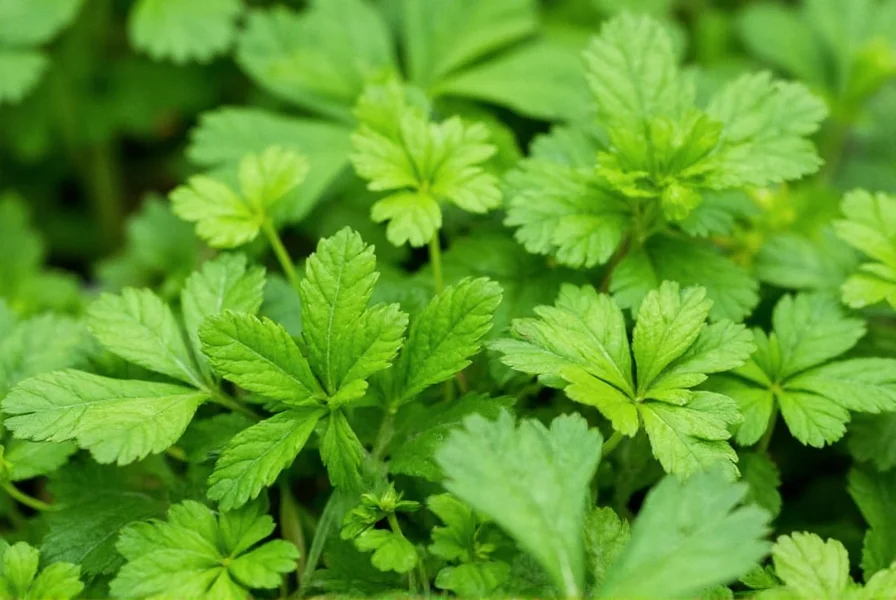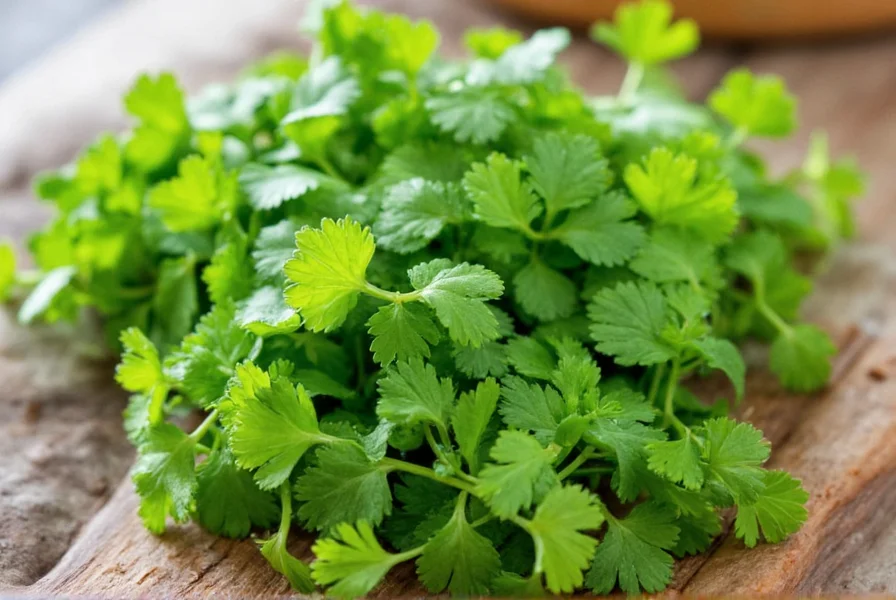Coriander (Coriandrum sativum), known as cilantro when referring to its fresh leaves, has been valued for centuries not just as a culinary staple but for its impressive health-promoting properties. This versatile herb and its seeds contain a powerful combination of vitamins, minerals, and phytochemicals that deliver measurable health benefits supported by scientific research.
Nutritional Powerhouse: What Makes Coriander Beneficial
Coriander's advantages stem from its exceptional nutritional profile. Both the seeds and fresh leaves contain valuable compounds that contribute to health:
| Nutrient | Coriander Seeds (per 100g) | Fresh Coriander Leaves (per 100g) |
|---|---|---|
| Vitamin K | 310 mcg (258% DV) | 310 mcg (258% DV) |
| Vitamin C | 21 mg (23% DV) | 27 mg (30% DV) |
| Iron | 17.5 mg (97% DV) | 1.77 mg (10% DV) |
| Manganese | 1.1 mg (48% DV) | 0.16 mg (7% DV) |
| Antioxidants | High in polyphenols | Rich in quercetin, kaempferol |
The distinctive health benefits of coriander seeds differ slightly from fresh coriander leaves due to variations in their phytochemical composition. Seeds contain higher concentrations of certain essential oils and fiber, while fresh leaves provide more immediate vitamin content.
Top Evidence-Based Health Advantages of Coriander
1. Powerful Antioxidant Protection
Coriander contains numerous antioxidants including quercetin, terpinene, and tocopherols that combat oxidative stress. Research published in the Journal of Agricultural and Food Chemistry demonstrates that coriander extracts effectively neutralize free radicals, potentially reducing cellular damage that contributes to chronic diseases. The antioxidant properties of coriander make it valuable for preventing premature aging and supporting overall cellular health.
2. Digestive Health Enhancement
How coriander improves digestion has been documented in traditional medicine systems for centuries and is now supported by modern research. The essential oils in coriander seeds stimulate digestive enzyme secretion and promote healthy gut motility. A 2020 study in Food Science & Nutrition found that coriander seed extract significantly reduced symptoms of indigestion and bloating in participants. The fiber content in coriander seeds also supports healthy bowel function and gut microbiome balance.

3. Blood Sugar Regulation
Coriander for blood sugar control shows promising results in clinical research. Multiple animal studies and preliminary human trials indicate that coriander seeds may help lower blood glucose levels by stimulating insulin secretion and improving insulin sensitivity. The compound coriandrin appears particularly effective in this regard. While more extensive human studies are needed, incorporating coriander into meals may offer supportive benefits for those managing blood sugar levels.
4. Cardiovascular Support
The heart health benefits of coriander include cholesterol management and blood pressure regulation. Research in the Journal of Ethnopharmacology shows that coriander seed extract can reduce LDL ("bad") cholesterol while maintaining HDL ("good") cholesterol levels. The potassium content in fresh coriander leaves also contributes to healthy blood pressure regulation. Regular consumption as part of a balanced diet may support overall cardiovascular function.
5. Anti-Inflammatory Effects
The anti-inflammatory properties of coriander make it valuable for managing chronic inflammation. Studies demonstrate that coriander compounds inhibit inflammatory pathways in the body, potentially reducing symptoms associated with arthritis and other inflammatory conditions. The linalool content in particular shows significant anti-inflammatory activity. Incorporating coriander regularly may help modulate the body's inflammatory response.
Coriander vs Cilantro: Understanding the Difference
Many people confuse coriander and cilantro, but they refer to different parts of the same plant. In American English, "cilantro" describes the fresh leaves and stems, while "coriander" refers to the dried seeds. In British English and many other regions, "coriander" describes both. This distinction matters when discussing health benefits, as the nutritional profiles differ between the fresh herb and the dried seeds. Both offer unique advantages, making them valuable additions to a health-conscious diet.
Practical Ways to Incorporate Coriander
To maximize the health benefits of coriander seeds and fresh leaves, consider these practical applications:
- Add fresh coriander leaves to salads, salsas, and smoothies for immediate vitamin benefits
- Dry roast coriander seeds before grinding to enhance flavor and nutrient availability
- Use coriander seed powder in curries, soups, and stews for digestive support
- Brew coriander seed tea by steeping 1 teaspoon of crushed seeds in hot water for 10 minutes
- Combine fresh coriander with lemon juice and olive oil for a nutrient-dense salad dressing
Scientific Evidence Overview
While traditional medicine has long recognized the advantages of coriander, modern science continues to validate many of these claims. Most research on coriander's health benefits comes from laboratory studies and animal models, with growing evidence from human clinical trials. The strongest evidence supports coriander's antioxidant, digestive, and anti-inflammatory properties. Research on blood sugar regulation shows promise but requires larger human studies. When evaluating scientific evidence on coriander benefits, it's important to distinguish between established effects and potential benefits still under investigation.
Potential Considerations and Side Effects
Coriander is generally safe for most people when consumed in typical food amounts. Some individuals may experience allergic reactions, particularly those with sensitivities to related plants like carrots or celery. People taking blood-thinning medications should monitor their intake of coriander due to its vitamin K content. Those with low blood pressure should be mindful of coriander's potential hypotensive effects. As with any dietary change, consult with a healthcare provider if you have specific health conditions or concerns.
Conclusion: Maximizing Coriander's Health Potential
The advantages of coriander extend far beyond its culinary appeal. Both the seeds and fresh leaves offer distinct health benefits supported by growing scientific evidence. From antioxidant protection to digestive support and potential blood sugar regulation, incorporating coriander into your regular diet provides a simple yet effective way to enhance nutritional intake. Understanding the difference between coriander seeds and fresh leaves allows you to strategically use each form to target specific health benefits. As research continues to uncover more about this versatile herb, its position as a functional food with genuine health-promoting properties becomes increasingly clear.
What are the main health benefits of coriander seeds compared to fresh leaves?
Coriander seeds offer higher concentrations of fiber and certain essential oils that support digestion and blood sugar regulation, while fresh coriander leaves provide more immediate vitamin content, particularly vitamin K and vitamin C. Seeds are particularly beneficial for digestive health and potential blood sugar management, while fresh leaves excel in antioxidant content and cardiovascular support.
How much coriander should I consume daily to gain health benefits?
For fresh coriander leaves, incorporating 1-2 tablespoons (5-10g) daily in salads, smoothies, or as a garnish provides measurable benefits. For coriander seeds, 1/2 to 1 teaspoon (2-5g) of ground seeds daily in cooking or as tea offers therapeutic effects. These amounts fit within typical culinary usage and provide health benefits without risk of side effects for most people.
Can coriander help with diabetes management?
Research suggests coriander may support blood sugar regulation through multiple mechanisms, including stimulating insulin secretion and improving insulin sensitivity. While not a replacement for diabetes medication, incorporating coriander into meals may provide complementary benefits for blood sugar control. Human studies are still limited, so consult with your healthcare provider about incorporating coriander as part of a comprehensive diabetes management plan.
Are there any scientifically proven anti-inflammatory effects of coriander?
Yes, multiple laboratory studies confirm that coriander contains compounds like linalool and quercetin that demonstrate significant anti-inflammatory activity by inhibiting inflammatory pathways in the body. Research published in the Journal of Medicinal Food shows coriander extract reduces markers of inflammation in animal models. While more human studies are needed, the anti-inflammatory properties of coriander are well-documented in scientific literature.
How does coriander compare to other common herbs in terms of nutritional value?
Coriander stands out for its exceptional vitamin K content, which exceeds that of many other common herbs. It also provides notable amounts of vitamin C, iron, and manganese. Compared to parsley, coriander has similar vitamin K levels but less vitamin C. Unlike basil or mint, coriander seeds offer significant fiber content. Each herb brings unique nutritional advantages, but coriander's combination of vitamins, minerals, and bioactive compounds makes it particularly valuable for comprehensive health support.












 浙公网安备
33010002000092号
浙公网安备
33010002000092号 浙B2-20120091-4
浙B2-20120091-4